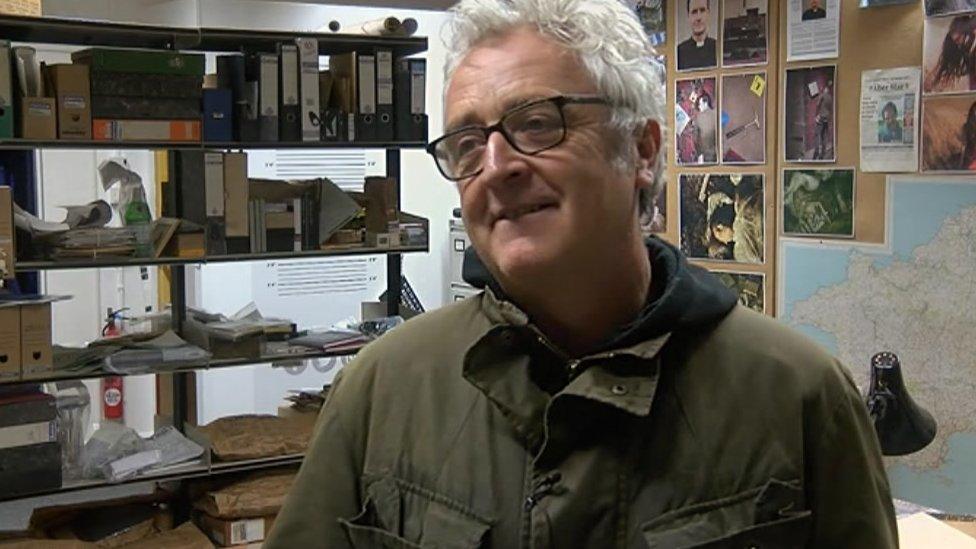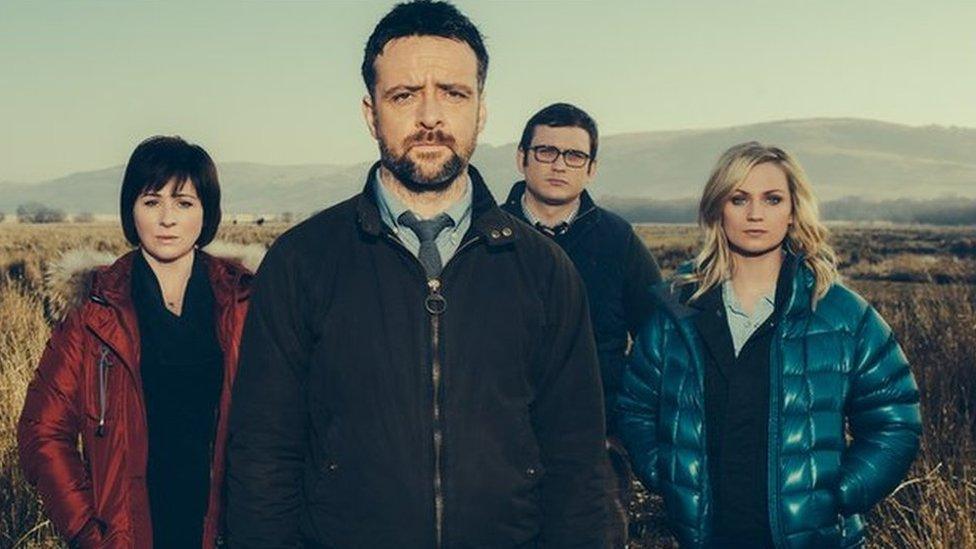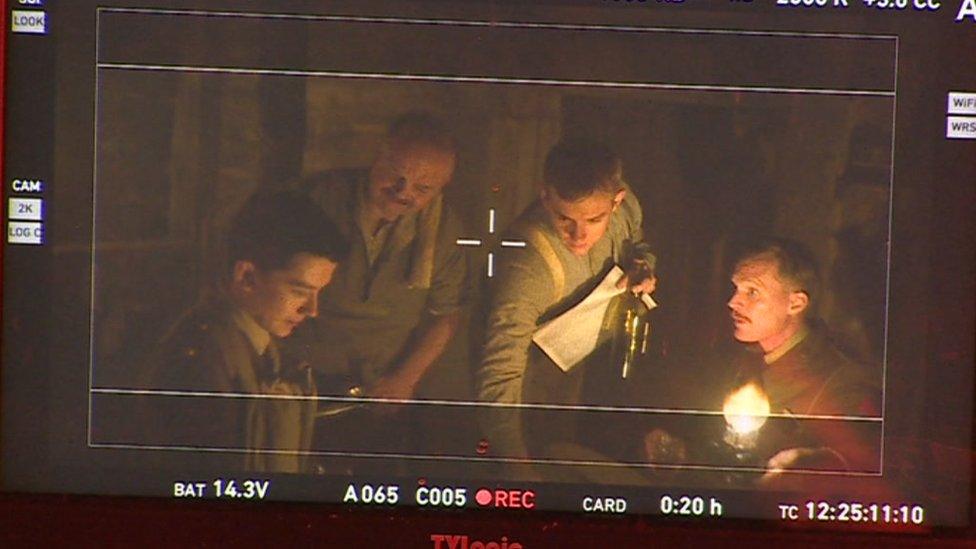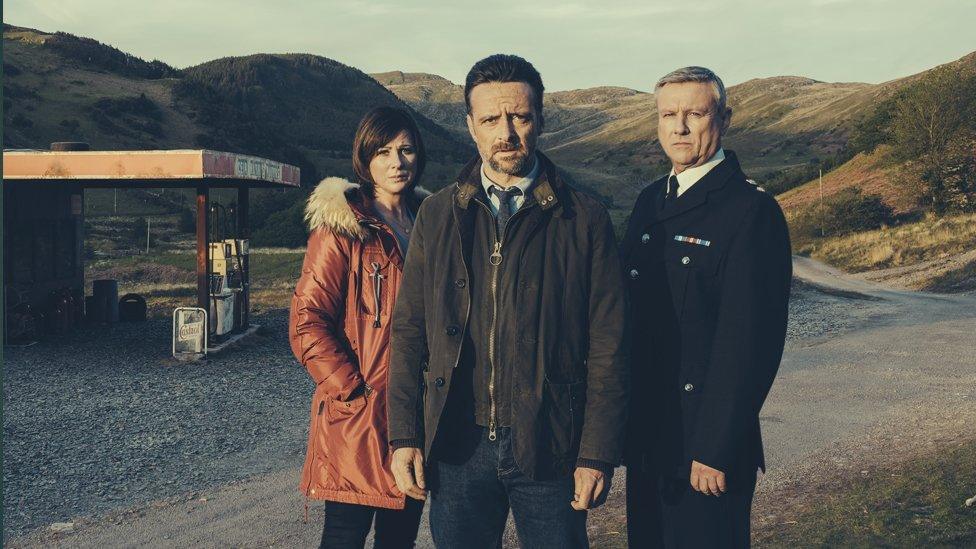Hinterland creator claims a 'lack of Welsh TV production talent'
- Published

Hinterland co-creator Ed Thomas has called on BBC Wales, S4C and the Welsh Government to help inspire more TV producers and directors in Wales.
The director of the BAFTA Cymru award-winning bilingual BBC and S4C crime drama does not think Wales is producing enough behind-the-camera talent.
BBC Wales and S4C said they are trying to grow TV's production pool in Wales.
Economy Secretary Ken Skates said continuing to help finance film and TV productions was vital.
The final episode of the third series of Y Gwyll, the Welsh language version of Hinterland, was broadcast on Sunday night on S4C, external and the English language show is due to be broadcast on the BBC in the new year.
Mr Thomas, creative director of independent TV production company Fiction Factory, which is behind Hinterland, wants the broadcasters and the Welsh Government to create a strategy to nurture producing and directing talent.
"When I started off, I wasn't interested in a career," he told BBC Radio Cymru. "I wanted to say something and challenge people - and I'd like to see the next generation doing the same.

BBC and S4C crime drama Hinterland has won multiple BAFTA Cymru awards
"If we really want to produce and export Welsh work in the future outside of the Hinterland crime genre, we have to nurture voices that look on Wales in a different way.
"I would like to think that the next generation challenge us more. They don't do so at the moment, there doesn't seem to be great talent coming through.
"I'd like to see the Assembly being aware there's a need to work with the BBC, maybe, and S4C and ask the question 'What kind of content do we want and how are we going to make it?'.
"I'd like to think that it's a challenge for all of us to nurture new talent and show that it can be good for the nation that there's different Welsh stuff out there, that can be exported and that is made by youngsters."
'Ambitious plans'
Hinterland and Y Gwyll were mainly filmed in Aberystwyth and surrounding Ceredigion and initially received repayable government support.
An S4C spokesman said: "We are determined to expand the pool of directing and producing talent in Wales and have been developing talent in this sector since S4C began.
"We have two ambitious plans in place to promote new talent in producing, directing and writing, called Labordy and Sinematic."
BBC Wales said it "provides opportunities for new talent" producing programmes such as Pobol y Cwm and Casualty through apprenticeships, work traineeships and work experience.
A spokesman added: "Since the beginning of the apprenticeship scheme in 2012, more than 50 individuals have taken advantage of the scheme and 80% of those have chosen to stay in the field and continue to contribute to the industry."
Ken Skates said: "Ultimately, for the long term, it's the availability of skills and the infrastructure that will determine whether or not the creative industries thrive in Wales.
"Where we are right now, we have great technical skills, we have great facilities as well. Between the two, I'm confident that the creative industries have a very strong future."
- Published19 December 2016

- Published20 November 2016
